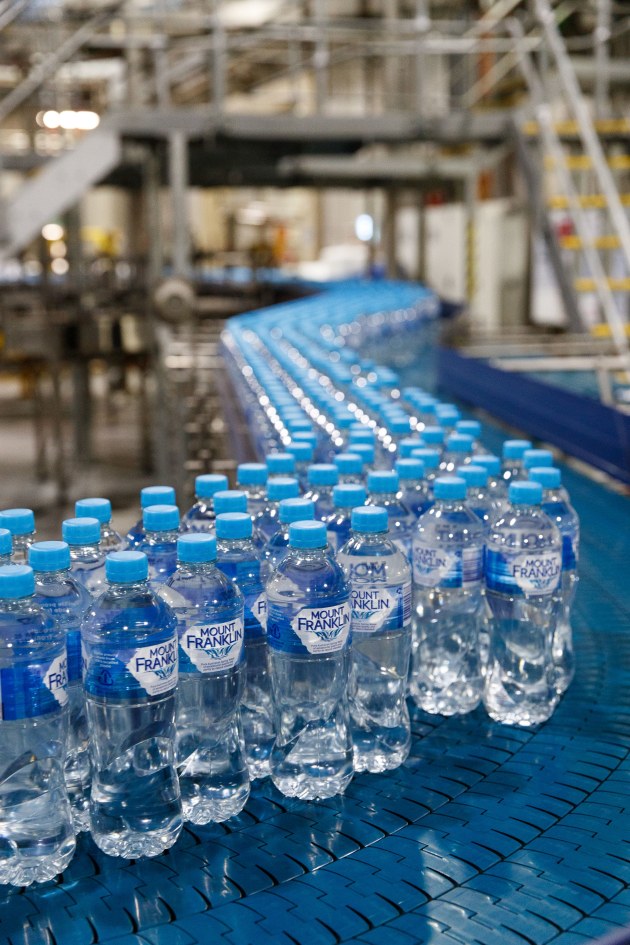From 2020, Coca-Cola will use 16,000 tonnes less of virgin plastic in Australia as it doubles its use of recycled plastic bottles in the Australian market.
In what is claimed to be the biggest commitment of its kind by any beverage company in Australia to date, Coca-Cola Australia and bottling partner Coca-Cola Amatil announced today that by the end of this year, 70 per cent of the plastic bottles manufactured for Coca-Cola Australia beverages – across soft drinks, water and juice in small packages (600ml and under) and including its major brands like Coca-Cola, Mount Franklin, Sprite and Fanta and Pump 750ml – will be made entirely from recycled plastic.
Quantifying this, Peter West, MD of Australian Beverages at Coca-Cola Amatil, said this will double the current use of recycled plastic across its beverage range by the end of this year.
"The increase in the use of recycled plastic means the company can avoid using around 16,000 tonnes of virgin plastic each year from 2020," West said.
“It’s the single largest increase in recycled plastic use in our history, and our strongest step forward in reducing packaging waste and the environmental impact of our operations.”
West said the collective voice of the community has been heard “loud and clear”, that “unnecessary packaging is unacceptable and we need to do our part in it nationwide”.
Vamsi Mohan Thati, President of Coca-Cola Australia, said: “As Australia’s biggest beverage company, we have a responsibility to help solve the plastic waste crisis.”

The move is in line with Coca-Cola’s global commitment to a World Without Waste and to increase recycled content and make all of its bottles and cans recyclable; and Coca-Cola Amatil’s commitment to Australia’s 2025 National Packaging Targets on recyclable and recycled materials.
West said Amatil’s increased use of recycled plastic followed initiatives such as the elimination of plastic straws, support for cost-effective well-run container deposit schemes and the company’s support for the 2025 National Packaging Targets.
“Our landmark transition to use 100 per cent recycled plastic in bottles began with Mount Franklin Still Pure Australian Spring Water in 2018. Following extensive research and development, this will now roll out across other brands in bottles 600ml and under, across Coca-Cola’s soft drink, water and juice products.”
Coca-Cola Australia and Coca-Cola Amatil support a number of grassroots initiatives to help collect and recycle beverage containers including CitizenBlue, Keep Australia Beautiful, and Eco Barge Clean Seas.
Both companies support The Coca-Cola Company’s global goal of reducing waste and by 2030 collecting and recycling as many cans and bottles as it sells each year.








